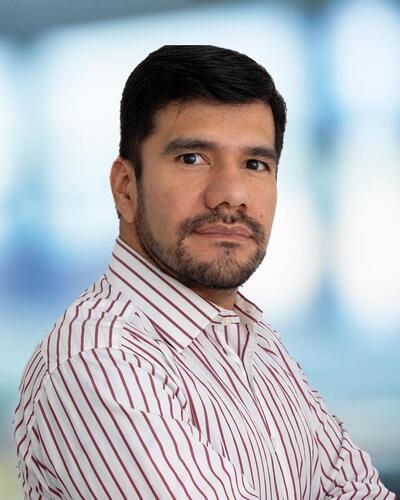Public Policy Planning to Enhance the Resilience of Socio-Ecological Systems to Climate Change
My PhD outlines an approach based on system dynamics for planning for resilience to climate change in food systems. The processes described and the insights gained are novel in the literature since they focus on describing operational aspects of resilience that can be generalised to multiple contexts and problems.
Main content
My PhD outlines an approach based on system dynamics for planning for resilience to climate change in food systems. The processes described and the insights gained are novel in the literature since they focus on describing operational aspects of resilience that can be generalised to multiple contexts and problems. On the one hand, the process described offers an aid for scientists and practitioners operationalising resilience in public sector settings. Simultaneously, the insights gained from multiple stakeholder discussions and modelling result in new questions related to the general mechanisms driving resilience in food systems.
Climate change is threatening the extent to which social, economic, and technical development will contribute to increasing global food security. The increase in weather variability and extreme events is expected to have a direct impact on crop yields and hence on the three main outcomes of food systems: food affordability, access and quality. The impacts of climate change are likely to increase food insecurity, especially among the rural poor, and urgent actions are needed to adapt food systems to the new and challenging conditions.
Resilience is commonly used to describe the means to maintain food system outcomes despite extreme weather events or unpredictable weather. Resilience, as a concept, is appealing to scientists and policymakers but is rarely used beyond being a metaphor for describing an idealized system. The limited application of resilience in terms of policymaking and planning frameworks is related, among other factors, to the lack of an approach to operationalise the concepts described in the literature into a planning process.
My work contributes to closing this gap by outlining an approach for operationalising resilience in socio-ecological systems. Specifically, this study explores the use of facilitated system dynamics to support planning for resilience in small-scale agricultural systems within public sector settings.
The lessons learned while working with two small-scale agricultural systems in Guatemala are used as instrumental cases to provide insights about the benefits and challenges of using facilitated system dynamics in the process of planning for resilience. The process consisted of intense field work (collecting data, interviewing stakeholders, organising participatory workshops) and modelling. Tangible outcomes and feedback from the stakeholders were later analysed and challenged in the literature to yield conclusions synthesised into academic articles and this study.
This study concludes that the practical interpretation of the definition of resilience is socially constructed by the stakeholders addressing the problem. This process benefits from the inclusion of a wide range of stakeholders engaged in a facilitated modelling exercise to ensure that different perspectives are considered.
Finally, the experience documented in my research shows that planning for resilience benefits from focusing on key strategic social, environmental and economic resources. Strategic resources play an important role in resilience mechanisms and can be directly linked to concrete activities and processes. Moreover, focusing on managing resources was demonstrated to be a good mechanism for engaging with process-oriented policymakers in the public sector.
Hugo Jose Herrera de Leon defended his doctoral thesis on 22.07.2018:
Herrera, H. J. (2018). Public Policy Planning to Enhance the Resilience of Socio-Ecological Systems to Climate Change. Operationalising Resilience Concepts from a Dynamic Perspective. [Doctoral thesis, University of Bergen].
